Humphrey Fellows learn about leadership during crises
March 4, 2019
March 4, 2019
A group of Humphrey Fellows spent a week at the Maxwell School discussing crisis and disaster management, U.N. responses to humanitarian crises, and how immigration policies under U.S. President Donald Trump illustrate a crisis in slow motion. The sessions, which took place in February, were part of Leadership and Governance during Times of Crisis, an annual weeklong workshop sponsored by the Maxwell School of Syracuse University and administered by Executive Education.
Attending the workshop were 28 fellows, representing 25 countries and 9 host campuses. Participants reflected a wide range of academic interests, including law, human rights, economic development, environmental policy, HIV/AIDS policy and prevention, human trafficking, and substance abuse education, treatment and prevention. They are among 150 Humphrey Fellows from 97 countries spending the 2018-19 academic year at one of 13 U.S. universities.
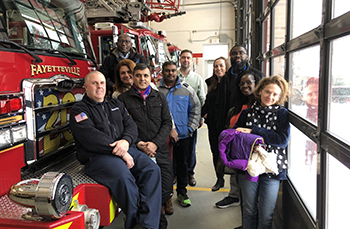 In addition to presentations at Maxwell, participants visited the Fayetteville Fire Department and met with the village’s fire chief and a representative of the town’s police department. The session illustrated operational considerations for emergency response from two separate organizational structures in one small community. The workshop schedule also offered personal leadership assessments, sessions on mapping technologies used in disaster management and crisis communications, and socializing and networking opportunities.
In addition to presentations at Maxwell, participants visited the Fayetteville Fire Department and met with the village’s fire chief and a representative of the town’s police department. The session illustrated operational considerations for emergency response from two separate organizational structures in one small community. The workshop schedule also offered personal leadership assessments, sessions on mapping technologies used in disaster management and crisis communications, and socializing and networking opportunities.
“Crisis decision making is unlike day-to-day problems because it involves situations where there is a high threat, short time, and high uncertainty,” workshop leader and Maxwell School faculty affiliate Bruce W. Dayton said. “For crisis situations that can be anticipated, such as hurricanes, power failures, or economic failure, preparedness around standard operating procedures can be highly effective. However, for situations that are novel, unfamiliar, or surprises — such as the September 11, 2011, terrorist attacks — decision-makers often operate ‘in the blind,’ resulting in inaccurate framing of the situation, group think dynamics, and/or inaction.”
Dayton is a faculty affiliate in the Moynihan Institute of Global Affairs and the Program for the Advancement of Research on Conflict and Collaboration and associate professor of peacebuilding and conflict transformation at the School for International Training in Brattleboro, Vermont.
This was the seventh year Dayton presented the weeklong workshop, illustrating the increasing relevance of crisis response and crisis management topics. Governments have increased funding exponentially for the field, he said.
“Crises and disasters are an endemic feature of governance in the 21st century,” Dayton said. “Whether rooted in human activity or natural processes, crises and disasters continue to test the capacity of leaders to effectively govern under the most difficult of circumstances.”
The workshop culminated with a half-day simulation, which allowed participants to apply both their own expertise and insights from the week’s discussions.
Humphrey Fellows spend ten months in graduate study, professional development, and cultural exchange, focusing on a wide variety of fields of study. The perspective they brought to the workshop sessions enabled engagement on many levels, organizers said.
“The Humphrey Fellows are experts in their chosen fields such as human rights, public health, NGO management, rural development, finance, public administration, and more. The collaborative and multidisciplinary research of participating faculty enabled fellows to envision skills they need to effectively lead in times of crisis,” said Margaret Lane, Syracuse Humphrey Program director and assistant director of Executive Education.
“During this 40th anniversary of the Hubert H. Humphrey Fellowship, Executive Education was honored to host these fellows for a week of impact and engagement with faculty, who appreciated their experience and perspective,” Lane added.
The Hubert H. Humphrey Fellowship Program began in 1978 to honor the late Senator and Vice President Hubert H. Humphrey and his lifelong commitment to international cooperation and public service. The fellowship is sponsored by the U.S. Department of State’s Bureau of Educational and Cultural Affairs and administered by the Institute of International Education.
The Maxwell School has been a host campus of the Humphrey Fellowship Program since 2008. The 2018-19 cohort, Maxwell’s tenth, includes 13 fellows who are pursuing studies and professional engagement in public policy, public administration, IT policy, NGO management, leadership, and collaboration. The current cohort hails from 12 countries: Brazil, Central African Republic, China, India, Mozambique, Pakistan, Panama, Papua New Guinea, South Sudan, Suriname, Ukraine, and Vietnam.
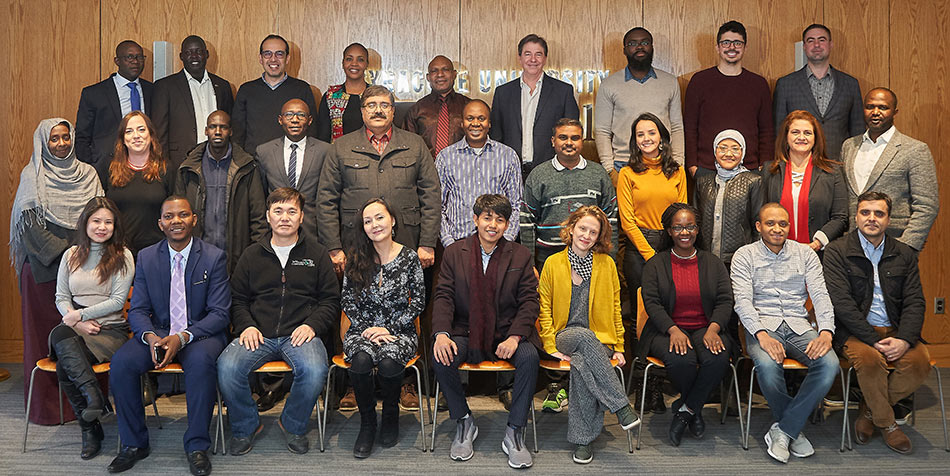
Related News
School News
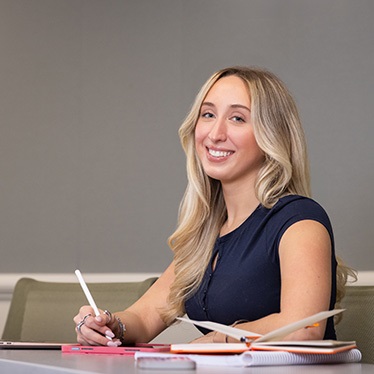
Dec 4, 2025
School News
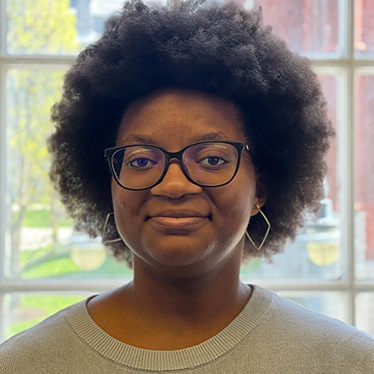
Nov 25, 2025
School News
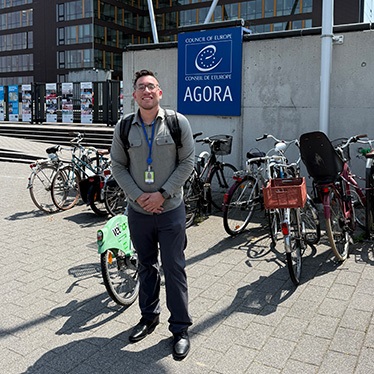
Nov 24, 2025
